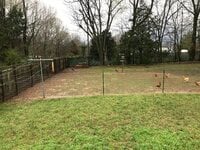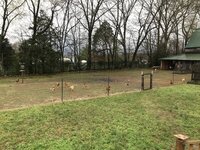I have 16 hens - no roosters. My 2 year old hens consist of 5 Rhode Islañd Reds and 3 Buff Orpington. Last year about this time, we added 8 Golden Comets. Needless to say, when the Comet baby chicks came home, they had some “growing up” to do before they were allowed to be in with my one year olds. Although we did have some posturing & a little bit of bullying going on when they first joined the rest of the group, aait doesn’t appear to be as frequent as it was.
All of a sudden, my egg production dropped dramatically from up to 14 a day to 9 a day. It’s been a month now where the egg count has been reduced. The Golden Comets started laying last August and I was getting an average of 12 a day prior to a month ago.
Their coop is quite ample space for 16 hens. They are let out into a fenced in area every morning. The area is VERY ample - to the point we can call them free range. They have layer crumbles & water available to them 24/7. Every evening they get a “treat” - mealworms, sunflower seeds & scratch - about 1/2 cup of each.
Any ideas?
All of a sudden, my egg production dropped dramatically from up to 14 a day to 9 a day. It’s been a month now where the egg count has been reduced. The Golden Comets started laying last August and I was getting an average of 12 a day prior to a month ago.
Their coop is quite ample space for 16 hens. They are let out into a fenced in area every morning. The area is VERY ample - to the point we can call them free range. They have layer crumbles & water available to them 24/7. Every evening they get a “treat” - mealworms, sunflower seeds & scratch - about 1/2 cup of each.
Any ideas?





